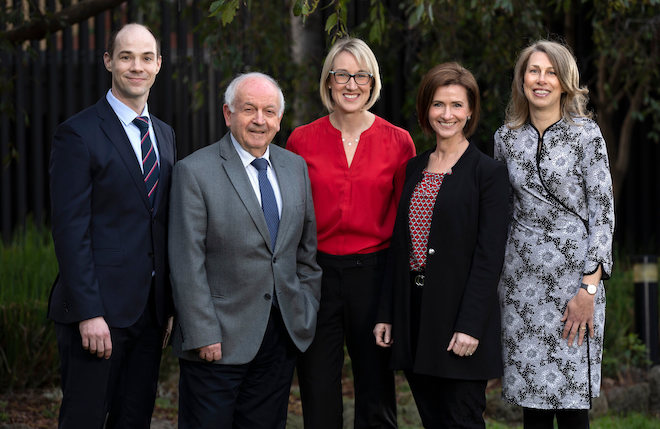Biopsies
Most disorders require a tissue sample from one or more sites to diagnose the exact nature of the problem. Samples may be as simple as a blood or urine test, or more complex procedures such as a biopsy. Common biopsies performed in Haematology include:
Lymph Node Biopsies
Lymph nodes (sometimes called lymph glands) can be enlarged in some haematological disorders. A biopsy may be done under local anaesthetic, where medication is injected into the site to make it go numb, and then a small sample of tissue is obtained at that site. Samples can be taken using ultrasound or CT (“cat scan”) to guide the doctor taking the biopsy. These guided biopsies are often appropriate for lymph nodes that are close to the surface of your body, and not too close to vital structures such as arteries, nerves or veins.
Sometimes a lymph node needs to be biopsied using a surgeon’s help. These biopsies are sometimes done under local anaesthetic but more often are done under a brief general anaesthetic. If your Haematologist feels that a surgical biopsy is required, you will be referred to one of our specialist surgeon colleagues who will explain the process, the risks and benefits, and will help with the booking process to allow your biopsy to take place.
Bone Marrow Biopsies
A lot of blood disorders originate in the bone marrow. Sometimes it is necessary to directly examine the bone marrow to make a proper diagnosis. A bone marrow biopsy is a straightforward procedure that is done under local anaesthetic, often with additional sedation. A small amount of bone marrow is taken from the back of the hip bone, leaving a tiny wound in the skin about 5mm long, that is covered by a simple skin dressing. The procedure itself is quite brief – taking 10-20 minutes, but if sedation is used, the process of going to sleep and waking up can make the whole procedure take a few hours. These procedures are usually done in the morning. Outpatient bone marrow biopsies are done in our Day Oncology Unit, and inpatient procedures are done on the ward, in your own bed. The procedure should cause only minimal discomfort, but there is often a bruise on the bone so you can feel tender at the site for a few days afterwards. See our Bone Marrow Biopsy patient information sheet (hyperlink) for more details.

